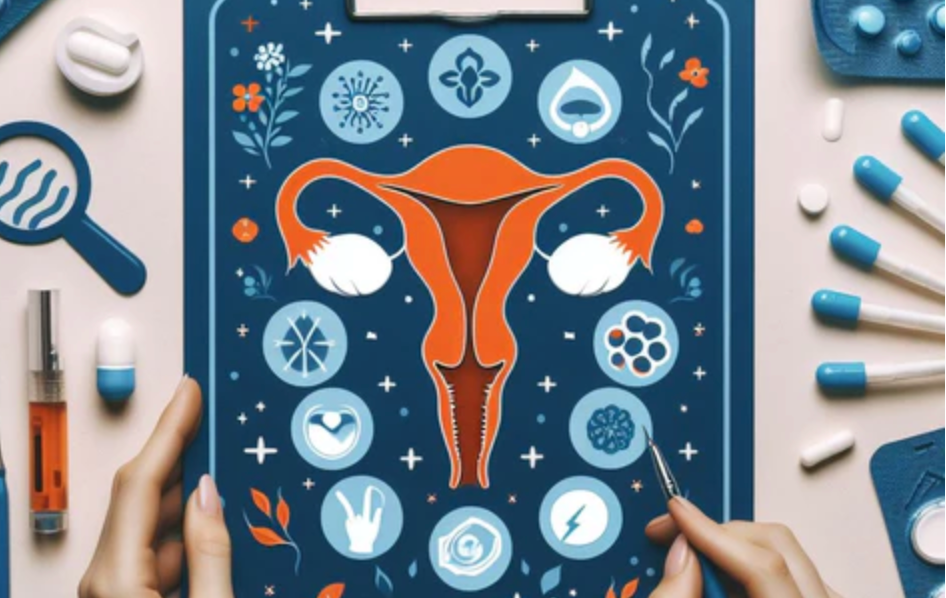Understanding Ovulation and Cramps: A Deep Dive

Understanding Ovulation and Cramps: A Deep Dive
Key Takeaways:
|
Aspect |
Detail |
|
Ovulation and Cramps |
Exploring if ovulation can cause cramps |
|
Causes of Ovulation Cramps |
Understanding the biological reasons behind cramps during ovulation |
|
Managing Ovulation Cramps |
Tips and products for alleviating discomfort |
|
Supplemental Support |
Highlighting Premium Inositol Powder for fertility support |
Can Ovulation Cause Cramps?
Ovulation, a critical phase in the menstrual cycle, often raises questions about its associated symptoms, particularly the occurrence of cramps. But can ovulation indeed cause cramps?
This question is more common than you might think, and the answer lies in understanding the intricacies of the female reproductive system.
During ovulation, which occurs roughly in the middle of the menstrual cycle, an egg is released from the ovaries.
This process can sometimes cause mild to moderate abdominal pain, known as mittelschmerz, which is German for "middle pain."
This pain is typically felt on one side of the lower abdomen and can vary in intensity and duration from woman to woman.
Biological Reasons Behind Ovulation Cramps:
- Follicular Rupture: As the follicle matures and prepares to release the egg, it stretches the surface of the ovary, which can cause discomfort or pain.
- Egg Release: The moment of egg release might trigger a brief, sharp pain.
- Fluid or Blood Release: When the egg is released, it's accompanied by a small amount of fluid or blood, which can irritate the lining of the abdomen, leading to cramps.
Alleviating Ovulation Discomfort:
1. Lifestyle Adjustments:
- Exercise: Regular, moderate exercise can help alleviate cramps by improving blood circulation and releasing endorphins.
- Heat Therapy: Using a warm compress or taking a warm bath can provide relief from the discomfort.
- Hydration and Diet: Drinking plenty of water and eating a balanced diet rich in fruits, vegetables, and whole grains can reduce bloating and cramps.
2. Supplements for Fertility and Wellness:
In addition to lifestyle changes, supplements can play a vital role in managing ovulation-related discomfort and supporting overall fertility.
For instance, Premium Inositol Powder from Conceivable provides a blend of nutrients designed to support hormonal balance and reproductive health.
3. Dietary Choices for Reducing Ovulation Cramps:
A woman's diet plays a crucial role in how her body handles various phases of the menstrual cycle, including ovulation.
Incorporating certain foods and nutrients can significantly reduce the discomfort associated with ovulation cramps.
- Magnesium-Rich Foods: Foods like spinach, almonds, and black beans, rich in magnesium, can help relax the muscles and reduce cramping.
- Omega-3 Fatty Acids: Foods like salmon and flaxseeds, high in omega-3 fatty acids, can reduce inflammation and alleviate pain.
- Hydrating Foods: Cucumbers, watermelon, and celery, which are high in water content, can help maintain hydration and reduce bloating.
The Role of Supplements in Ovulation Health:
In addition to a well-balanced diet, supplements can be an effective way to manage ovulation cramps and support overall reproductive health.
Myo-Inositol and Pregnancy:
One supplement that often comes into focus is myo-inositol. Known for its role in promoting ovary function and egg quality, myo-inositol is a popular supplement among those trying to conceive. But a common question arises: "Is myo-inositol safe in pregnancy?"
Research suggests that myo-inositol is generally safe and can be beneficial during pregnancy, particularly for those with polycystic ovary syndrome (PCOS).
It can help regulate blood sugar levels and improve ovulatory function. However, it's crucial to consult with a healthcare provider before starting any supplement during pregnancy.
The Power of Personalized Supplements:
At Conceivable, the focus is on personalizing supplement regimens to cater to individual fertility needs.
Their Premium Inositol Powder is a prime example of a targeted supplement designed to support hormonal balance and reproductive health.
This product, backed by peer-reviewed research, embodies the commitment to quality and efficacy.
Graphical Representation:

Conclusion:
Managing ovulation cramps effectively involves a holistic approach that includes dietary adjustments, lifestyle changes, and the right supplements.
By understanding and addressing the underlying causes of these cramps, women can find relief and support their overall reproductive health.
In the final generation of this article, we will summarize the key points and provide actionable advice for women experiencing ovulation cramps, emphasizing the importance of individualized care and the role of high-quality supplements like Conceivable's Premium Inositol Powder.
Reference List:
- Magnesium and Women's Health: "The Impact of Magnesium on Female Fertility" - Journal of Women's Health. A comprehensive study on how magnesium intake influences fertility and menstrual health.
- Competitor Analysis - Fertility Supplements: Explore FertilityBoost for an alternative perspective on supplements for reproductive health.
- Competitor Analysis - Dietary Choices for Fertility: For more insights on diet and fertility, visit NutriFertile.
